Cycle Supplement
This clinically validated daily supplement is formulated to reduce every menstrual cycle symptom.
- 10 nutrients, proven by the highest quality of clinical trials.
- Advanced biotechnology beadlets for maximum absorption.
- For anyone with cycle symptoms, incl. those with PMS, PMDD, PCOS, endometriosis, or in perimenopause. Suitable if on contraception.
Take for at least 3 months for full benefits, though many feel results in weeks.
-
Reduces Cravings

-
Reduces Cramps

-
Improves Energy

-
Improves Mood

-
Reduces Bloating

-
Reduces Breast Tenderness

-
Reduces Headaches

-
Reduces Anxiety

-
Reduces Irritability

Take two capsules a day, in the AM with a glass of water, with or without food.
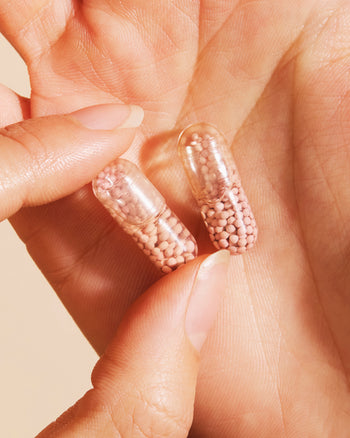
- Vegan
- Gluten-free
- Dairy-free
- Non-GMO
- Sugar-free
- Third party tested
Vitamin D
Meta-analyses
- 11 studies: Lin KC, Huang KJ, Lin MN, Wang CY, Tsai TY. Vitamin D Supplementation for Patients with Dysmenorrhoea: A Meta-Analysis with Trial Sequential Analysis of Randomised Controlled Trials. Nutrients. 2024;16(7):1089
- 8 studies: Chen YC, Chiang YF, Lin YJ, et al. Effect of Vitamin D Supplementation on Primary Dysmenorrhea: A Systematic Review and Meta-Analysis of Randomized Clinical Trials. Nutrients. 2023;15(13):2830.
- 10 studies: Wang L, Wen X, Lv S, Tian S, Jiang Y, Yang X. Effects of vitamin D supplementation on metabolic parameters of women with polycystic ovary syndrome: a meta-analysis of randomized controlled trials. Gynecol Endocrinol. 2021;37(5):446-455.
- 9 studies: Fang F, Ni K, Cai Y, Shang J, Zhang X, Xiong C. Effect of vitamin D supplementation on polycystic ovary syndrome: A systematic review and meta-analysis of randomized controlled trials. Complement Ther Clin Pract. 2017;26:53-60.
Randomised placebo-controlled trials
- Moini A, Ebrahimi T, Shirzad N, et al. The effect of vitamin D on primary dysmenorrhea with vitamin D deficiency: a randomized double-blind controlled clinical trial. Gynecol Endocrinol. 2016;32(6):502-505.
- Rahnemaei FA, Gholamrezaei A, Afrakhteh M, et al. Vitamin D supplementation for primary dysmenorrhea: a double-blind, randomized, placebo-controlled trial. Obstet Gynecol Sci. 2021;64(4):353-363
- Heidari H, Amani R, Feizi A, Askari G, Kohan S, Tavasoli P. Vitamin D Supplementation for Premenstrual Syndrome-Related inflammation and antioxidant markers in students with vitamin D deficient: a randomized clinical trial. Sci Rep. 2019;9(1):14939.
- Amzajerdi A, Keshavarz M, Ghorbali E, Pezaro S, Sarvi F. The effect of vitamin D on the severity of dysmenorrhea and menstrual blood loss: a randomized clinical trial. BMC Womens Health. 2023;23(1):138.
- Lasco A, Catalano A, Benvenga S. Improvement of primary dysmenorrhea caused by a single oral dose of vitamin D: results of a randomized, double-blind, placebo-controlled study. Arch Intern Med. 2012;172(4):366-367.
- Ataee M, Zangeneh M, Mahboubi M. Cholecalciferol for primary dysmenorrhea in a college aged population—A clinical trial. J. Biol. Todays World. 2015;4:54–57.
- Behum. Coimbatore Medical College; Coimbatore, India: 2017. Study of Prevalence of Vitamin d Deficiency in Primary Dysmenorrhea and Administration of a Single Oral Dose of Vitamind to Improve Primary Dysmenorrhea. Master’s Thesis. 2017.
- Pakniat H, Chegini V, Ranjkesh F, Hosseini MA. Comparison of the effect of vitamin E, vitamin D and ginger on the severity of primary dysmenorrhea: a single-blind clinical trial. Obstet Gynecol Sci. 2019;62(6):462-468.
- Tartagni M, Cicinelli MV, Tartagni MV, et al. Vitamin D Supplementation for Premenstrual Syndrome-Related Mood Disorders in Adolescents with Severe Hypovitaminosis D. J Pediatr Adolesc Gynecol. 2016;29(4):357-361
- Mehdizadehkashi A, Rokhgireh S, Tahermanesh K, Eslahi N, Minaeian S, Samimi M. The effect of vitamin D supplementation on clinical symptoms and metabolic profiles in patients with endometriosis. Gynecol Endocrinol. 2021;37(7):640-645.
- Hajhashemi M, Ansari M, Haghollahi F, Eslami B. The effect of vitamin D supplementation on the size of uterine leiomyoma in women with vitamin D deficiency. Caspian J Intern Med. 2019;10(2):125-131.
Case-control and cross-sectional studies
Associations between low vitamin D and menstrual cycle symptoms
- Bertone-Johnson ER, Hankinson SE, Bendich A, Johnson SR, Willett WC, Manson JE. Calcium and vitamin D intake and risk of incident premenstrual syndrome. Arch Intern Med. 2005;165(11):1246-1252
- Jarosz AC, El-Sohemy A. Association between Vitamin D Status and Premenstrual Symptoms. J Acad Nutr Diet. 2019;119(1):115-123.
- Zeynali M, Haghighian HK. Is there a relationship between serum vitamin D with dysmenorrhea pain in young women?. J Gynecol Obstet Hum Reprod. 2019;48(9):711-714.
Zinc
Meta-analyses
- 6 studies: Hsu TJ, Hsieh RH, Huang CH, et al. Efficacy of Zinc Supplementation in the Management of Primary Dysmenorrhea: A Systematic Review and Meta-Analysis. Nutrients. 2024;16(23):4116.
Randomised placebo-controlled trials
- Jafari F, Amani R, Tarrahi MJ. Effect of Zinc Supplementation on Physical and Psychological Symptoms, Biomarkers of Inflammation, Oxidative Stress, and Brain-Derived Neurotrophic Factor in Young Women with Premenstrual Syndrome: a Randomized, Double-Blind, Placebo-Controlled Trial. Biol Trace Elem Res. 2020;194(1):89-95.
- Obiagwu HI, Eleje GU, Obiechina NJA, et al. Efficacy of zinc supplementation for the treatment of dysmenorrhoea: a double-blind randomised controlled trial. J Int Med Res. 2023;51(5):3000605231171489.
- Zekavat OR, Karimi MY, Amanat A, Alipour F. A randomised controlled trial of oral zinc sulphate for primary dysmenorrhoea in adolescent females. Aust N Z J Obstet Gynaecol. 2015;55(4):369-373.
- Siahbazi S, Behboudi-Gandevani S, Moghaddam-Banaem L, Montazeri A. Effect of zinc sulfate supplementation on premenstrual syndrome and health-related quality of life: Clinical randomized controlled trial. J Obstet Gynaecol Res. 2017;43(5):887-894.
- Ahmadi M, Khansary S, Parsapour H, Alizamir A, Pirdehghan A. The Effect of Zinc Supplementation on the Improvement of Premenstrual Symptoms in Female University Students: a Randomized Clinical Trial Study. Biol Trace Elem Res. 2023;201(2):559-566.
- Kashefi F, Khajehei M, Tabatabaeichehr M, Alavinia M, Asili J. Comparison of the effect of ginger and zinc sulfate on primary dysmenorrhea: a placebo-controlled randomized trial. Pain Manag Nurs. 2014;15(4):826-833.
- Sangestani G, Khatibanv M, Marci R, Piva I. The Positive Effects of Zinc Supplements on the Improvement of Primary Dysmenorrhea and Premenstrual Symptoms: A Double-blind, Randomized, Controlled Trial. Journal of Midwifery and Reproductive Health. 2015. 3(3), 378-384.
- Teimoori B, Ghasemi M, Hoseini ZS, Razavi M. The Efficacy of Zinc Administration in the Treatment of Primary Dysmenorrhea. Oman Med J. 2016;31(2):107-111.
- Safdar F., Kalsoom S., Majeed N., Nisa K., Riaz M., Tariq S. Comparison of Efficacy and Safety of Zinc Gluconate versus Placebo for Treatment of Primary Dysmenorrhea. J. Rawalpindi Med. Coll. 2022;26:363–367.
- Obiagwu HI, Eleje GU, Obiechina NJA, et al. Efficacy of zinc supplementation for the treatment of dysmenorrhoea: a double-blind randomised controlled trial. J Int Med Res. 2023;51(5):3000605231171489.
- Afshar Ebrahimi F, Foroozanfard F, Aghadavod E, Bahmani F, Asemi Z. The Effects of Magnesium and Zinc Co-Supplementation on Biomarkers of Inflammation and Oxidative Stress, and Gene Expression Related to Inflammation in Polycystic Ovary Syndrome: a Randomized Controlled Clinical Trial. Biol Trace Elem Res. 2018;184(2):300-307.
- Jamilian M, Foroozanfard F, Bahmani F, Talaee R, Monavari M, Asemi Z. Effects of Zinc Supplementation on Endocrine Outcomes in Women with Polycystic Ovary Syndrome: a Randomized, Double-Blind, Placebo-Controlled Trial. Biol Trace Elem Res. 2016;170(2):271-278.
Case-control studies
Associations between low zinc & menstrual cycle symptoms
- Fathizadeh S, Amani R, Haghighizadeh MH, Hormozi R. Comparison of serum zinc concentrations and body antioxidant status between young women with premenstrual syndrome and normal controls: A case-control study [published correction appears in Int J Reprod Biomed. Int J Reprod Biomed. 2016;14(11):699-704.
- Chocano-Bedoya PO, Manson JE, Hankinson SE, et al. Intake of selected minerals and risk of premenstrual syndrome. Am J Epidemiol. 2013;177(10):1118-1127.
Omega-3
Meta-analyses
- 8 studies: Mohammadi MM, Dehghan Nayeri N, Mashhadi M, Varaei S. Effect of omega-3 fatty acids on premenstrual syndrome: A systematic review and meta-analysis. J Obstet Gynaecol Res. 2022;48(6):1293-1305
- 8 studies: Snipe RMJ, Brelis B, Kappas C, et al. Omega-3 long chain polyunsaturated fatty acids as a potential treatment for reducing dysmenorrhoea pain: Systematic literature review and meta-analysis. Nutr Diet. 2024;81(1):94-106.
- 10 studies: Xia Y, Wang Y, Cui M, Su D. Efficacy of omega-3 fatty acid supplementation on cardiovascular risk factors in patients with polycystic ovary syndrome: a systematic review and meta-analysis. Ann Palliat Med. 2021;10(6):6425-6437.
- 9 studies: Yang K, Zeng L, Bao T, Ge J. Effectiveness of Omega-3 fatty acid for polycystic ovary syndrome: a systematic review and meta-analysis. Reprod Biol Endocrinol. 2018;16(1):27.
Randomised placebo-controlled trials
- Rocha Filho EA, Lima JC, Pinho Neto JS, Montarroyos U. Essential fatty acids for premenstrual syndrome and their effect on prolactin and total cholesterol levels: a randomized, double blind, placebo-controlled study. Reprod Health. 2011;8:2.
- Mano Y, Kato A, Fukuda N, Yamada K, Yanagimoto K. Influence of Ingestion of Eicosapentaenoic Acid-Rich Fish Oil on Oxidative Stress at the Menstrual Phase: A Randomized, Double-Blind, Placebo-Controlled, Parallel-Group Trial. Womens Health Rep (New Rochelle). 2022;3(1):643-651.
- Sohrabi N, Kashanian M, Ghafoori SS, Malakouti SK. Evalua-tion of the effect of omega-3 fatty acids in the treatment of pre-menstrual syndrome: “a pilot trial”. Complement Ther Med.2013;21(3):141–6
- Tofighiyan T, Kooshki A, Hassan RM. The effects of omega-3 fatty acids on premenstrual syndrome. Iran J Obstet Gynecol Infertil. 2013; 15(32): 23–8.
- Abbasinia K, Hosini F. A comparative study of the effects of Omega-3 and Perforan on severity mood symptoms in pre-menstrual syndrome. Complement Med J. 2013;3(3):529–40
- Jamilian M, Jamilian H, Mirzaie S. Rose Damascenavs. Omega-3 in the treatment of premenstural syndrome: Arandomized, and placebo-controlled clinical trial. Comple-ment Med J. 2013;3(3):541–51.
- Behboudi-Gandevani S, Hariri FZ, Moghaddam-Banaem L.The effect of omega 3 fatty acid supplementation on premen-strual syndrome and health-related quality of life: a random-ized clinical trial. J Psychosom Obstet Gynaecol. 2018;39(4):266–72
- Sadeghi N, Paknezhad F, Rashidi Nooshabadi M, Kavianpour M, Jafari Rad S, Khadem Haghighian H. Vitamin E and fish oil, separately or in combination, on treatment of primary dysmenorrhea: a double-blind, randomized clinical trial. Gynecol Endocrinol. 2018;34(9):804-808.
- Deutch B, Jørgensen EB, Hansen JC. Menstrual discomfort in Danish women reduced by dietary supplements of omega-3 PUFA and B12 (fish oil or sea oil capsules). Nutr Res. 2000; 20(5):621-631.
- Mandana Z, Azar A. Comparison of the effect of vit E, vitB6,calcium and omega-3 on the treatment of premenstrual syn-drome: a clinical randomized trial. Ann Res Rev Biol. 2014;4:1141–9
- Kheirkhah M, Gholami R, Ghare-shiran SY, Abbasinia H.Comparison of the effect of omega-3 fatty acids andperforan (Hypericum perforatum) on severity of premen-strual syndrome (PMS): a randomized trial. Int J Med ResHealth Sci. 2016;5(11):333–40
- Harel Z, Biro FM, Kottenhahn RK, Rosenthal SL. Supplementation with omega-3 polyunsaturated fatty acids in the management of dysmenorrhea in adolescents. Am J Obstet Gynecol. 1996;174(4):1335-1338.
- Moghadamnia AA, Mirhosseini N, Abadi MH, Omranirad A, Omidvar S. Effect of Clupeonella grimmi (anchovy/kilka) fish oil on dysmenorrhoea. East Mediterr Health J. 2010;16(4):408-413
Saffron
Randomised placebo-controlled trials
- Rajabi F, Rahimi M, Sharbafchizadeh MR, Tarrahi MJ. Saffron for the Management of Premenstrual Dysphoric Disorder: A Randomized Controlled Trial. Adv Biomed Res. 2020;9:60.
- Agha-Hosseini M, Kashani L, Aleyaseen A, et al. Crocus sativus L. (saffron) in the treatment of premenstrual syndrome: a double-blind, randomised and placebo-controlled trial. BJOG. 2008;115(4):515-519.
- Beiranvand S, Beiranvand N, Moghadam Z, Birjandi M, Azhari S, Rezaei E, et al. The effect of crocus sativus (saffron) on the severity of premenstrual syndrome. Eur J Integr Med. 2016;8(1):55-61.
Chamomile
Randomised placebo-controlled trials
- Najafi Mollabashi E, Ziaie T, Bostani Khalesi Z. The effect of Matricaria chamomile on menstrual related mood disorders. Eur J Obstet Gynecol Reprod Biol X. 2021;12:100134.
- Saghafi N, Rhkhshandeh H, Pourmoghadam N, et al. Effectiveness of Matricaria chamomilla (chamomile) extract on pain control of cyclic mastalgia: a double-blind randomised controlled trial. J Obstet Gynaecol. 2018;38(1):81-84.
- Khalajinia Z, Falahieh FM, Aghaali M. The Effects of Chamomile and Flaxseed on Pelvic Pain, Dyspareunia, and Dysmenorrhea in Endometriosis: A Controlled Randomized Clinical Trial. Iran J Nurs Midwifery Res. 2024;29(6):731-736
Systematic reviews
- 8 studies: Khalesi ZB, Beiranvand SP, Bokaie M. Efficacy of Chamomile in the Treatment of Premenstrual Syndrome: A Systematic Review. J Pharmacopuncture. 2019;22(4):204-209
- 8 studies: Niazi A, Moradi M. The Effect of Chamomile on Pain and Menstrual Bleeding in Primary Dysmenorrhea: A Systematic Review. Int J Community Based Nurs Midwifery. 2021;9(3):174-186
Iron
Randomised placebo-controlled trials
- Vaucher P, Druais PL, Waldvogel S, Favrat B. Effect of iron supplementation on fatigue in nonanemic menstruating women with low ferritin: a randomized controlled trial. CMAJ. 2012;184(11):1247-1254.
- Verdon F, Burnand B, Stubi CL, et al. Iron supplementation for unexplained fatigue in non-anaemic women: double blind randomised placebo controlled trial. BMJ. 2003;326(7399):1124.
Case-control studies
Associations between low iron and menstrual cycle symptoms
- Chocano-Bedoya PO, Manson JE, Hankinson SE, et al. Intake of selected minerals and risk of premenstrual syndrome. Am J Epidemiol. 2013;177(10):1118-1127.
Vitamin C (increases iron absorption)
- Heffernan A, Evans C, Holmes M, Moore JB. The Regulation of Dietary Iron Bioavailability by Vitamin C: A Systematic Review and Meta-Analysis. Proceedings of the Nutrition Society. 2017;76(OCE4):E182.
Health Claims
Non-haem iron absorption
- European Food Safety Authority (EFSA) - Vitamin C related Health Claims. https://www.efsa.europa.eu/en/efsajournal/pub/1226
Magnesium
Randomised placebo-controlled trials
- Yaralizadeh M, Nezamivand-Chegini D , Najar S , Namjoyan F , Abedi . Effectiveness of magnesium on menstrual symptoms among dysmenorrheal college students: A randomized controlled trial. International Journal of Women's Health & Reproduction Sciences. 2024. 12(2).
- Fathizadeh N, Ebrahimi E, Valiani M, Tavakoli N, Yar MH. Evaluating the effect of magnesium and magnesium plus vitamin B6 supplement on the severity of premenstrual syndrome. Iran J Nurs Midwifery Res. 2010;15(Suppl 1):401-405.
- Walker AF, De Souza MC, Vickers MF, Abeyasekera S, Collins ML, Trinca LA. Magnesium supplementation alleviates premenstrual symptoms of fluid retention. J Womens Health. 1998;7(9):1157-1165.
- Facchinetti F, Sances G, Borella P, Genazzani AR, Nappi G. Magnesium prophylaxis of menstrual migraine: effects on intracellular magnesium. Headache. 1991;31(5):298-301. doi:10.1111/j.1526-4610.1991.hed3105298.x
- De Souza MC, Walker AF, Robinson PA, Bolland K. A synergistic effect of a daily supplement for 1 month of 200 mg magnesium plus 50 mg vitamin B6 for the relief of anxiety-related premenstrual symptoms: a randomized, double-blind, crossover study. J Womens Health Gend Based Med. 2000;9(2):131-139
- Facchinetti F, Borella P, Sances G, Fioroni L, Nappi RE, Genazzani AR. Oral magnesium successfully relieves premenstrual mood changes. Obstet Gynecol. 1991;78(2):177-181.
- Seifert B, Wagler P, Dartsch S, Schmidt U, Nieder J. Magnesium--eine therapeutische Alternative bei der primären Dysmenorrhoe [Magnesium--a new therapeutic alternative in primary dysmenorrhea]. Zentralbl Gynakol. 1989;111(11):755-760.
- De Souza MC, Walker AF, Robinson PA, Bolland K. A synergistic effect of a daily supplement for 1 month of 200 mg magnesium plus 50 mg vitamin B6 for the relief of anxiety-related premenstrual symptoms: a randomized, double-blind, crossover study. J Womens Health Gend Based Med. 2000;9(2):131-139.
- Afshar Ebrahimi F, Foroozanfard F, Aghadavod E, Bahmani F, Asemi Z. The Effects of Magnesium and Zinc Co-Supplementation on Biomarkers of Inflammation and Oxidative Stress, and Gene Expression Related to Inflammation in Polycystic Ovary Syndrome: a Randomized Controlled Clinical Trial. Biol Trace Elem Res. 2018;184(2):300-307.
- Jaripur M, Ghasemi-Tehrani H, Askari G, Gholizadeh-Moghaddam M, Clark CCT, Rouhani MH. The effects of magnesium supplementation on abnormal uterine bleeding, alopecia, quality of life, and acne in women with polycystic ovary syndrome: a randomized clinical trial. Reprod Biol Endocrinol. 2022;20(1):110.
- Shahmoradi S, Chiti H, Tavakolizadeh M, Hatami R, Motamed N, Ghaemi M. The Effect of Magnesium Supplementation on Insulin Resistance and Metabolic Profiles in Women with Polycystic Ovary Syndrome: a Randomized Clinical Trial [published correction appears in Biol Trace Elem Res. 2024 May;202(5):2402.
Vitamin B6
Randomised placebo-controlled trials
- Randabunga, Ervan & Lukas, Efendi & Tumedia, Josephine & Chalid, Maisuri. (2018). Effect of Pyridoxine on Prostaglandin Plasma Level for Primary Dysmenorrheal Treatment. Indonesian Journal of Obstetrics and Gynecology. 239. 10.32771/inajog.v6i4.848
- De Souza MC, Walker AF, Robinson PA, Bolland K. A synergistic effect of a daily supplement for 1 month of 200 mg magnesium plus 50 mg vitamin B6 for the relief of anxiety-related premenstrual symptoms: a randomized, double-blind, crossover study. J Womens Health Gend Based Med. 2000;9(2):131-139.
- Fathizadeh N, Ebrahimi E, Valiani M, Tavakoli N, Yar MH. Evaluating the effect of magnesium and magnesium plus vitamin B6 supplement on the severity of premenstrual syndrome. Iran J Nurs Midwifery Res. 2010;15(Suppl 1):401-405.
- Williams MJ, Harris RI, Dean BC. Controlled trial of pyridoxine in the premenstrual syndrome. J Int Med Res. 1985;13(3):174-179.
- Kashanian M, Mazinani R, Jalalmanesh S, Babayanzad Ahari S. Pyridoxine (vitamin B6) therapy for premenstrual syndrome. Int J Gynaecol Obstet. 2007;96(1):43-44.
- Wyatt KM, Dimmock PW, Jones PW, Shaughn O'Brien PM. Efficacy of vitamin B-6 in the treatment of premenstrual syndrome: systematic review. BMJ. 1999;318(7195):1375-1381.
- Ebrahimi E, Khayati Motlagh S, Nemati S, Tavakoli Z. Effects of magnesium and vitamin b6 on the severity of premenstrual syndrome symptoms. J Caring Sci. 2012;1(4):183-189.
Systematic review
- 9 studies: Wyatt KM, Dimmock PW, Jones PW, Shaughn O’Brien PM. Efficacy of vitamin B-6 in the treatment of premenstrual syndrome: systematic review. BMJ 1999;318:1375-81
Chromium
Randomised placebo-controlled trials
- Anton SD, Morrison CD, Cefalu WT, et al. Effects of chromium picolinate on food intake and satiety. Diabetes Technol Ther. 2008;10(5):405-412.
- Lucidi RS, Thyer AC, Easton CA, Holden AE, Schenken RS, Brzyski RG. Effect of chromium supplementation on insulin resistance and ovarian and menstrual cyclicity in women with polycystic ovary syndrome. Fertil Steril. 2005;84(6):1755-1757.
- Jamilian M, Asemi Z. Chromium Supplementation and the Effects on Metabolic Status in Women with Polycystic Ovary Syndrome: A Randomized, Double-Blind, Placebo-Controlled Trial. Ann Nutr Metab. 2015;67(1):42-48. doi:10.1159/000438465
- Ashoush S, Abou-Gamrah A, Bayoumy H, Othman N. Chromium picolinate reduces insulin resistance in polycystic ovary syndrome: Randomized controlled trial. J Obstet Gynaecol Res. 2016;42(3):279-285
Health Claims
Contribution to normal macronutrient metabolism, maintenance of normal blood glucose concentrations, contribution to the maintenance or achievement of a normal body weight.
- European Food Safety Authority (EFSA) Journal - Chromium Related Health Claims. https://www.efsa.europa.eu/en/efsajournal/pub/1732
Formulated by leading female scientists
Formulated by leading female scientists
Alice specialises in evidence-based nutrition, laboratory work and clinical trials. With a strong dedication to the highest standards of science, she translates clinical trial findings into effective solutions for her DITTO community.
Dr. Anita Mitra is a gynaecologist with 10+ years NHS experience, specialising in surgery for gynaecological cancers and treating conditions like fibroids, PCOS, and endometriosis. Known online as 'The Gynae Geek' (also the title of her first book), she is the author of Dealing with Problem Periods. She holds a PhD from Imperial College London.
Dr Tosin brings over a decade of clinical experience across the NHS and private health sector, with a particular focus in Women’s Health. She has been featured in a number of publications and is an advisory mentor for FemTech Lab.

Menstrual health,
matters
Bringing our bodies and minds into their best state to manage our symptoms.
MOOD
Omega-3, Vitamin B6, Saffron & Chamomile improve mood and maintain normal brain health.
ENERGY LEVELS
Iron reduces tiredness and fatigue and is essential for oxygen transport. Vitamin C increases the absorption of Iron.
BLOATING
Magnesium reduces water retention by regulating electrolyte balance.
PAINFUL CRAMPS
Vitamin D reduces prostaglandins and inflammation, Zinc reduces oxidative stress and Magnesium relaxes smooth muscles of the uterus.
CRAVINGS
Chromium helps reduce cravings by stabilising blood sugar levels and improving insulin sensitivity.
BREAST TENDERNESS
Magnesium reduces water retention by regulating electrolyte balance, helping alleviate swelling and tenderness.
HEADACHES
Magnesium reduces headaches by preventing the constriction of blood vessels.
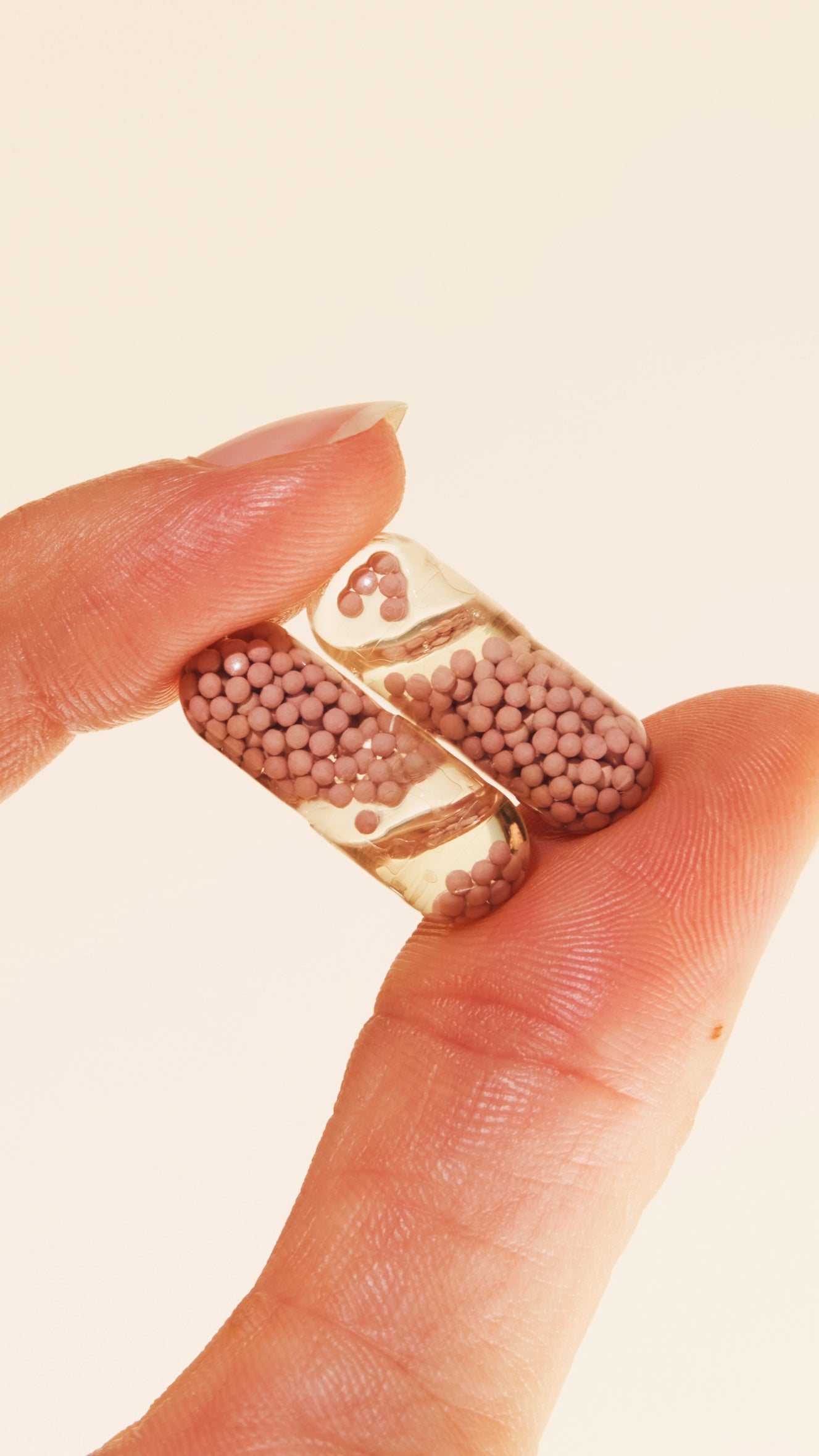
Nutrient Delivery Biotechnology
Did you know? In standard supplements, when nutrients are released all at once, they can actually block each other's absorption.
Engineered for Maximum Absorption
The technology allows timed and targeted release of different nutrients, reducing interference.
Developed for Steady Release
Avoids overwhelming the body's absorption mechanisms, ensuring more is absorbed over time.
Kind to your Body
Infused with citrus flavour and gentle on your gut, taking the capsules is an enjoyable experience.
Simplified Routine
It combines oil and dry ingredients, meaning that you no longer need multiple supplements.
Ingredients
 with
Impact
with
Impact
Researched and tested. Nothing but the best when it comes to your menstrual health.
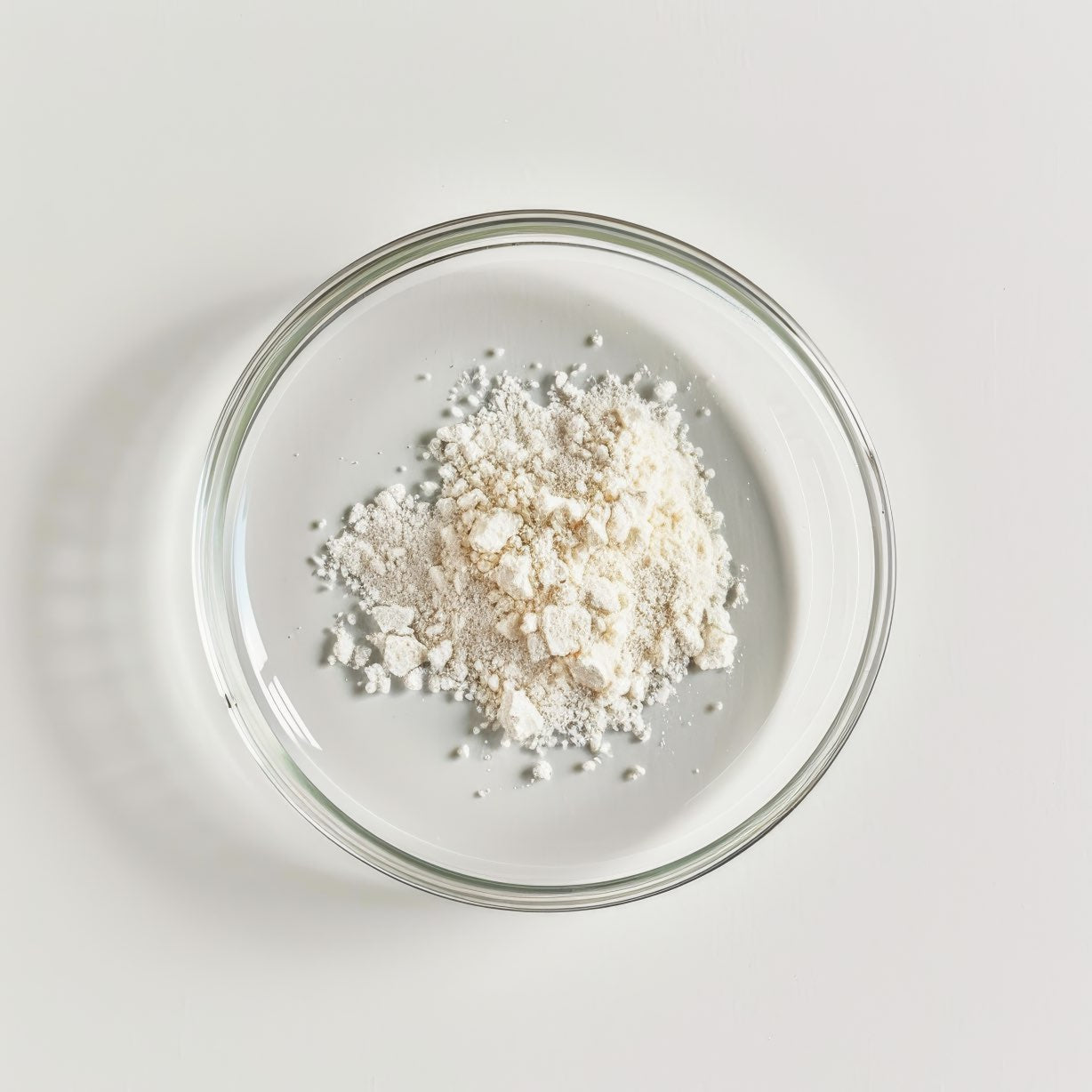
Magnesium Bisglycinate

Chromium Picolinate
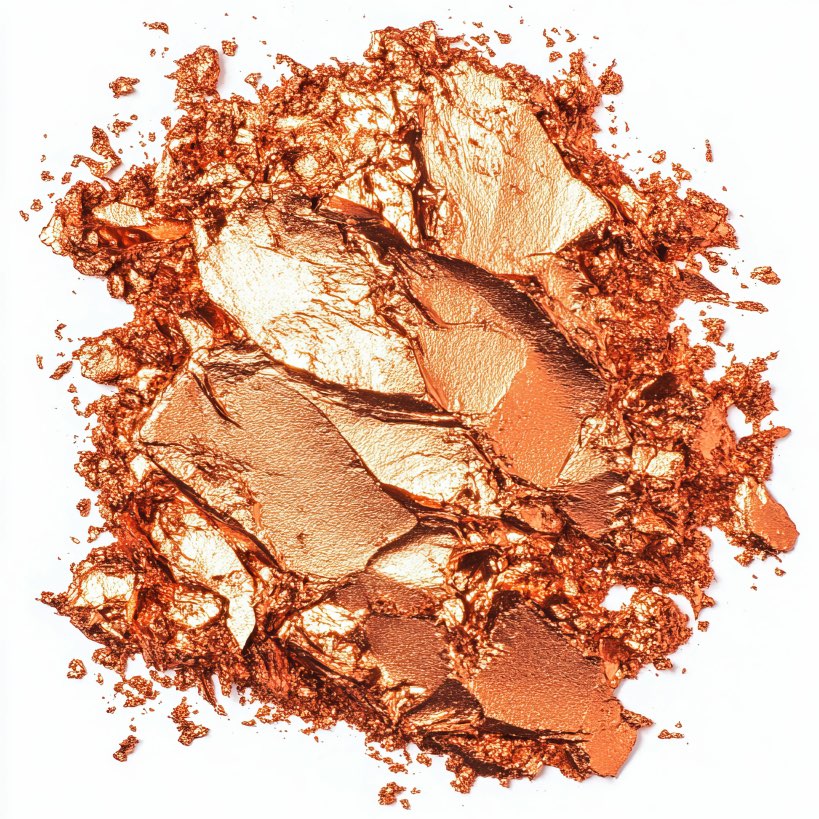
Ferrous Bisglycinate

Chamomile Oil

Algal Oil
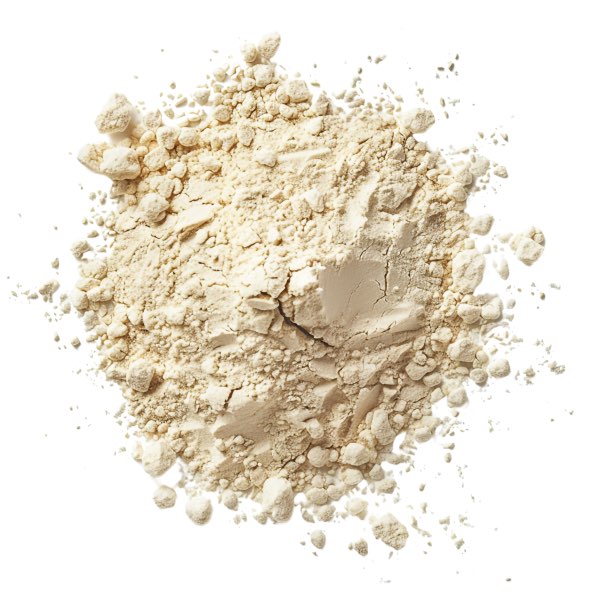
Pyridoxal-5-Phosphate

Ascorbic Acid

Crocus Sativus L.
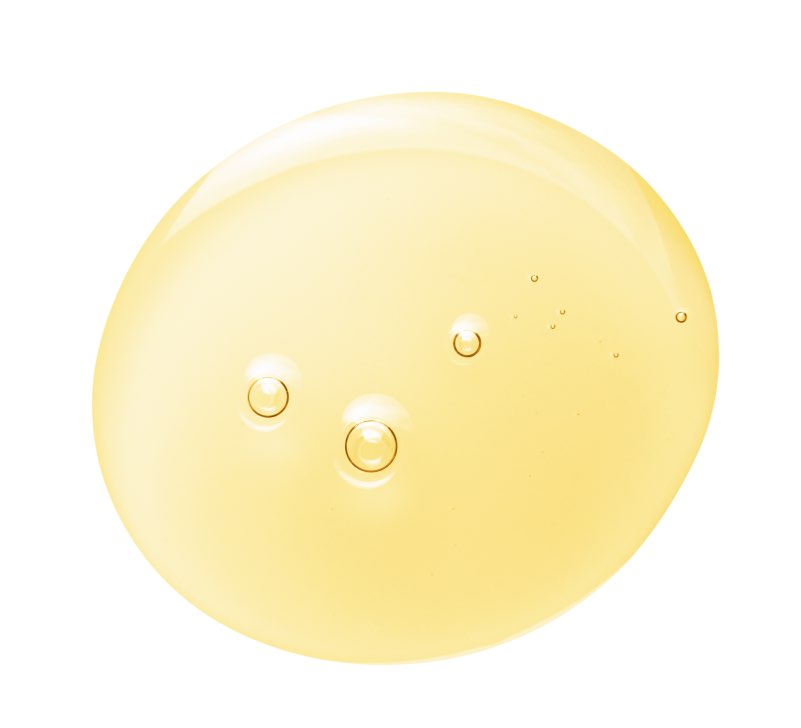
Cholecalciferol
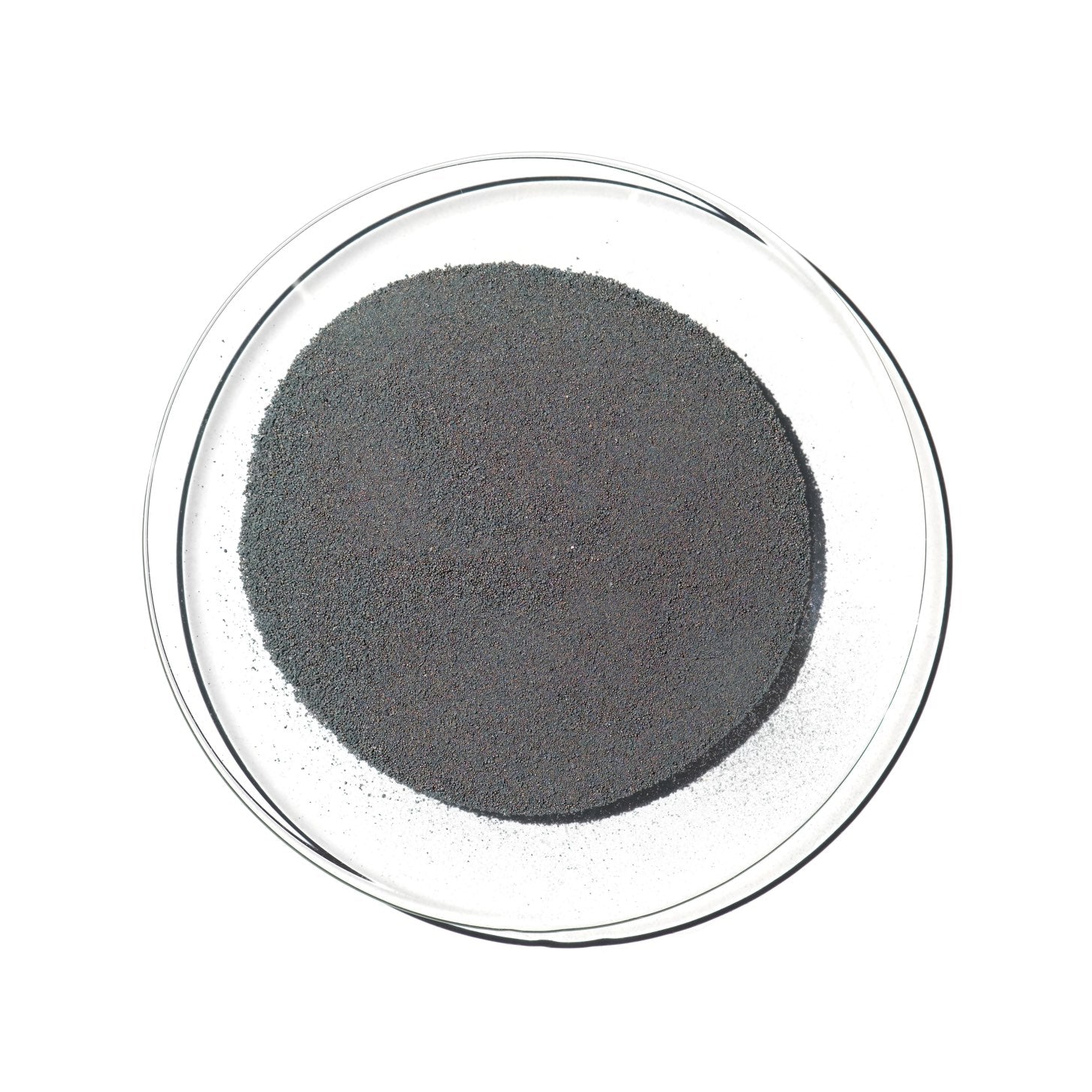
Zinc Citrate
Bio-based Packaging

The purpose of our packaging is to reduce plastic pollution by offering a sustainable alternative to conventional plastic. Our jars are made of responsibly sourced plant-based and biodegradable binders, and sustainable composition like wood from industrial side streams or naturally occurring clay minerals.
Our jars use a selection of biopolymers and natural fibres with the aim to maximise the use of recycled content, side streams, and certified biomasses. We make sure that the biomasses from which our biopolymers originate are sustainably grown according to good land use principles. Our leading design principle is to mimic nature.
One way to recycle biodegradable materials is through organic recycling, which includes composting and anaerobic digestion. All our jars and pouches can be digested by naturally occurring microorganisms. They biodegrade into CO2, water, and biomass in a similar time frame as tree leaves, and leave no permanent microplastics or toxic residues behind.
Microplastics have been discovered in the highest peaks and the deepest seas. With an expected 300% growth in plastic production by 2050, the amount of microplastics in our environment is only escalating. The only way to stop microplastic pollution is to replace conventional plastic with bio-based and biodegradable materials.
Frequently Asked Questions
This supplement is formulated based on clinical trials focused on reducing symptoms in people who suffer from mild to severe menstrual cycle symptoms - whether it be premenstrual syndrome (PMS), premenstrual dysphoric disorder (PMDD), dysmenorrhea (painful cramps), endometriosis or polycystic ovary syndome (PCOS). It’s especially beneficial for those dealing with painful cramps, bloating, breast tenderness, headaches, menstrual migraines, fatigue, low energy, body aches, pelvic pain, cravings, mood swings, anxiety, irritability, and difficulty concentrating.
Additionally, it is beneficial for the erratic cycle symptoms during the perimenopause transition.
It’s also ideal for anyone looking to support their overall menstrual health or those whose energy levels or emotional well-being are affected by the ebb and flow of their menstrual cycle.
Take 2 capsules together daily, with or without food, with a glass of water in the AM ⏰
To feel the full benefits of the supplement, it's recommended to take it daily for at least 3 full menstrual cycles. While many will experience benefits within the first few weeks, clinical trials often show modest effects during the first cycle, with more significant improvements felt during the 2nd and 3rd cycle of daily supplementation.
When taking nutrition supplements, it typically takes several weeks to feel noticeable effects because they need time to interact with your body’s ongoing cellular processes and support them optimally (e.g. energy metabolism and neurotransmitter production). Many nutrients work by building up in your body gradually, and need to be consistently present in your system for weeks before the effects become apparent, especially when correcting deficiencies and supporting long-term health ⏳
Clinical trials show that to effectively reduce menstrual cycle symptoms, nutrients must be taken daily. By keeping your nutrient levels consistently optimal, you equip your body to handle any effects that come with hormonal shifts, reducing, or even preventing symptoms before they start. Nutrients need time to interact with the ongoing cellular processes underlying our symptoms, so taking the supplement only when symptoms arise is insufficient.
The hormonal shifts of our menstrual cycle trigger a wide range of cellular processes in the body, impacting things like neurotransmitter production, inflammation and oxidative stress. Nutrients don’t alter hormones, but instead they work by targeting these “intermediate” processes that occur between hormonal changes and your resulting symptoms. For instance, zinc helps support brain-derived neurotrophic factor (BDNF) which regulates the growth and plasticity of neural circuits that regulate emotions, and reduces oxidative stress; vitamin B6 is required for neurotransmitter biosynthesis that impacts mood (e.g. serotonin); while magnesium aids in regulating fluid balance and alleviating excess water retention, or relaxing the muscles that cause your cramps. This is how these nutrients can help manage the symptoms associated with hormonal fluctuations.
Well, did you know that in standard supplements, when many nutrients are released at the same time in our body, certain nutrients (like iron, zinc, magnesium) can actually block each other’s absorption?
But your DITTO supplement is designed with a nutrient delivery technology to maximise absorption:
- Timed and targeted release of different nutrients: With these beadlets, each nutrient is sprayed on in layers and they get released gradually in your body, to avoid them inhibiting each other’s absorption.
- Prevents “Vitamin Dumping”: This steady release also means you avoid “vitamin dumping”, which is when too much of a nutrient is released at once, leading to excess amounts being eliminated by the body without being absorbed. The gradual release avoids overwhelming the body's absorption mechanisms, ensuring that more of the nutrient is absorbed over time.
Meet the orange grove tab! Have you ever taken an omega-3 supplements and been hit with a fishy after taste? We really didn’t want that with our supplement, which contains algal oil omega-3. This is why we send them to you with a tab that is infused with a citrus scent, which makes taking them an enjoyable experience.
Each nutrient in our capsule is tested in randomised, placebo-controlled clinical trials, demonstrating statistically significant reductions in menstrual cycle symptoms compared to a placebo.
We prioritise quality over quantity by selecting only the most relevant studies focused on individuals suffering with symptoms specifically tied to their cycles. This ensures our supplement is specifically effective for those challenges.
To sum it up - every nutrient is scientifically proven to address menstrual cycle symptoms and the underlying mechanisms that contribute to them.
Many of us on hormonal contraception continue to experience breast tenderness, bloating, cramps, low energy, and mood changes - especially around the time of our withdrawal bleeds or pill breaks. This supplement is designed to be effective at addressing these same challenges you may still face!
All the forms of the nutrients in this supplement are carefully selected for their gentle nature and are well-tolerated.
Many of us experience the umbrella of PMS symptoms and painful periods alongside distinct symptoms originating from other menstrual conditions. DITTO reduces these, but also addresses condition-specific symptoms.
Every nutrient is proven to work for PMS and dysmenorrhea (painful cramps).
Scientific research also supports the effectiveness of key DITTO nutrients in managing symptoms specifically related to these conditions:
- Endometriosis pelvic pain, dyspareunia, dysmenorrhea (through vitamin D, chamomile)
- PCOS insulin sensitivity, follicular development, menstrual cycle regulation, hirsutism, cardiovascular risk factors (through vitamin D, zinc, magnesium, omega-3, chromium)
- Fibroid size (through vitamin D)
So, DITTO offers relief for both general and condition-specific conditions, whether they occur separately or alongside each other!
Absolutely! This supplement can still help with menstrual cycle symptoms during perimenopause, and many of the nutrients it contains also support many aspects of overall health after menopause.
Yes! Every ingredient is vegan.
‘Bioavailable’ ingredients are nutrients that your body can easily absorb and put to work. Not all nutrient forms are absorbed equally - some are used better than others. For example, your body might only absorb 20% of a certain nutrient form (like magnesium oxide), while with another one, it could be as high as 80% or more (like magnesium glycinate).
Your pot is made from a material crafted from responsibly sourced raw materials, primarily wood-fibres and agricultural byproducts like crop residues that would typically be considered waste. By repurposing them, we’re helping reduce waste in landfills. It’s biodegradable and compostable, meaning it can be digested by naturally occurring microorganisms, leaving no microplastics or toxic load behind. The speckles come from the natural byproducts, giving the pot a beautiful earthy look and a ceramic-like feel.
- Promotes a Circular Economy.
- Biodegradable & Compostable.
- Distinctive Texture.
- Designed for Longevity.
Once you’ve got your pot for life, we’ll send you refill pouches that are compostable and letterbox-friendly. These convenient pouches fit right through your door, reducing the need for bulky packaging and cutting down on transportation emissions, ultimately lowering carbon footprints.
Store in in a cool, dry place away from direct sunlight and moisture.
It's always recommended to consult with your doctor before taking any supplements during pregnancy or while breastfeeding.
Your Cycle Your Way
-
Free shipping
Across all subscriptions
-
FLEXIBLE PLAN
Skip, pause or cancel anytime
-
REFERRALS
Give £20, get £20 on referrals
-
RISK-FREE
30 day money-back guarantee
Cycle Supplement



























 with
with